Site will be
unavailable for maintenance from June. 4, 11:30 p.m., to June 5, 12:30 a.m. ET. Thank you for your
patience!
She's got skills: Meet the amazing young women entrepreneurs of Uganda
By Cecilia Okoth, communications officer, ChildFund Uganda Posted on 07/14/2023
Did you know that young people between the ages of 15 and 24 make up 16 percent of the world’s population? Youth are an enormous part of our global identity, and their contributions are essential to a thriving human society. Yet around the world, teens and young adults often struggle to find affordable skills training that will allow them the freedom to make their own living.
Why are youth skills so important?
Without relevant and lucrative skills with which to support themselves, young people often find themselves trapped in poverty at the very beginning of their lives. This is especially true in low- and middle-income countries, where job markets may already be saturated – and especially for women, who face unique challenges to earning a sustainable livelihood.
In Uganda, which has one of the youngest populations in the world, many people who have historically depended on the land for their livelihoods live in areas with increasingly unpredictable and extreme weather patterns – including floods and droughts, which are affecting crop yields. These changes disproportionately impact girls and women, who are often responsible for cultivating crops. And as climate change exacerbates existing gender disparities, it is making it more difficult for girls and women to access resources and opportunities.
The COVID-19 pandemic worsened these struggles as schools shut down and unemployment rates skyrocketed. Lockdown measures led to a spike in teenage pregnancies as young girls lost hope for schools reopening; the rate of teen pregnancy in Uganda stands at 25%, furthering the economic divide between young women and men.
Honing youth skills in Uganda
Since September 2022, ChildFund has teamed up with The Coca-Cola Foundation to support youth in Uganda, especially young moms, through the Women and Youth Economic Empowerment (WYEE) project. The project is designed to give young people access to valuable vocational skills that they can use to transition to the labor market, improve their lives and actively engage in their communities.
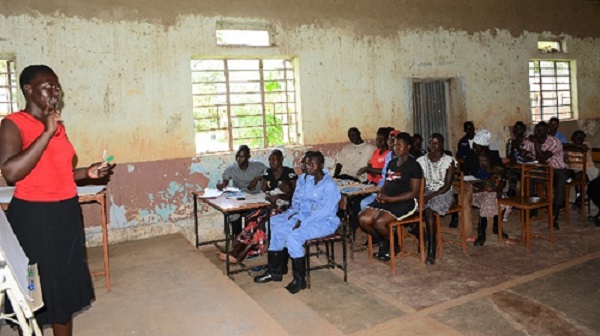 Nancy Acham, a facilitator with the WYEE project in Kole District, Uganda, teaches lessons on horticulture, poultry and goat rearing to project participants.
Nancy Acham, a facilitator with the WYEE project in Kole District, Uganda, teaches lessons on horticulture, poultry and goat rearing to project participants.
The 15-month project is now well underway – and 440 people, most of them young women, are celebrating as they begin to flex their new skills and enter the next chapter of their lives. Many of the project participants are young mothers who dropped out of school after having their babies, leaving them uncertain about the future.
The project’s goal? To enable youth participants to increase their annual income from $101 to $162 USD per year – a 60% increase – by the project’s completion in November 2023. To get there, some participants are choosing to start their own retail businesses using the startup capital they’ve received from the project and the training they’re undergoing in microenterprise development.
Marita, 15, is investing in selling shoes to support herself and her son. Here, she’s setting up shop at a market in Dokolo District.
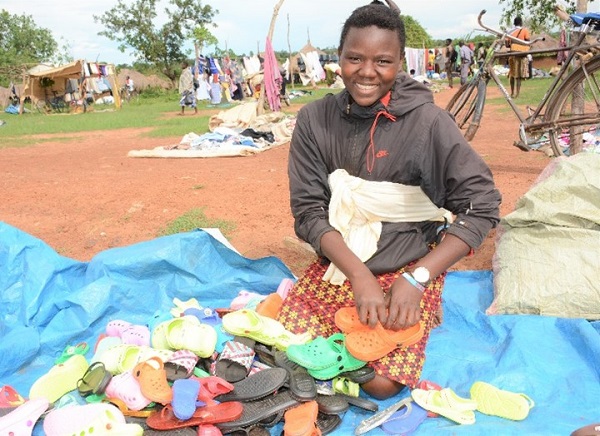
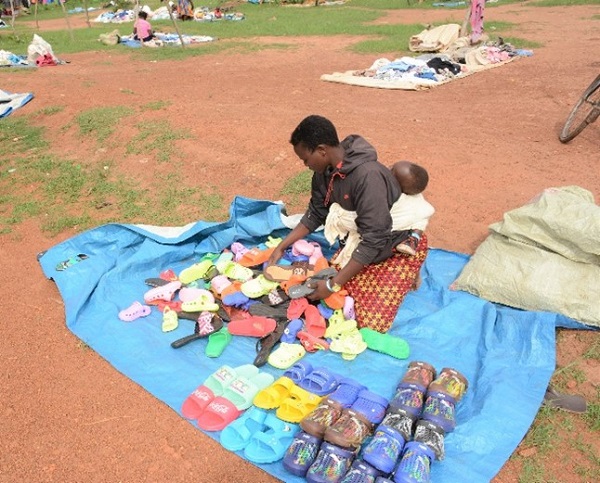
Joyce, 20, from Amuria District, has opened up a hair salon to help her earn extra income.
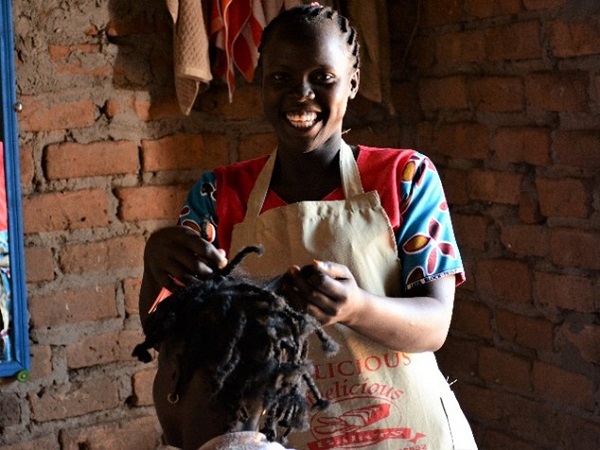
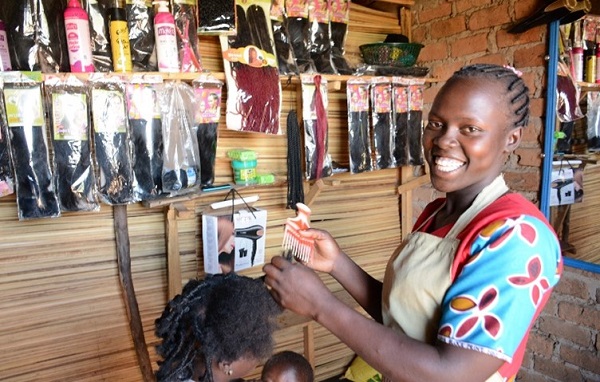
Josephine, 20, started her own grocery store in Serere District.
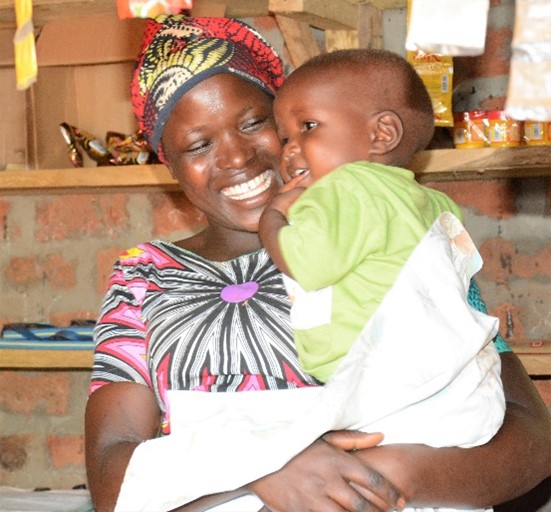
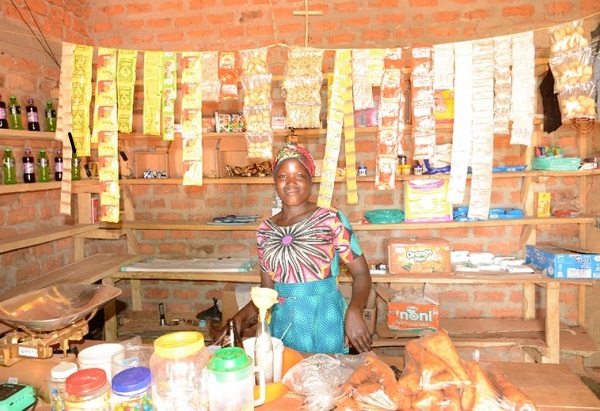
Other women have already been working in the agricultural sector and want to continue doing so. The project has supported these women to navigate climate change by introducing them to resilient, drought-resistant crops, promoting crop diversification and teaching improved methods of land management and crop protection.
Restuta, 31, in Dokolo District, is practicing the climate-smart agriculture methods she learned with her friends. They’re growing onions, tomatoes, eggplant and more!
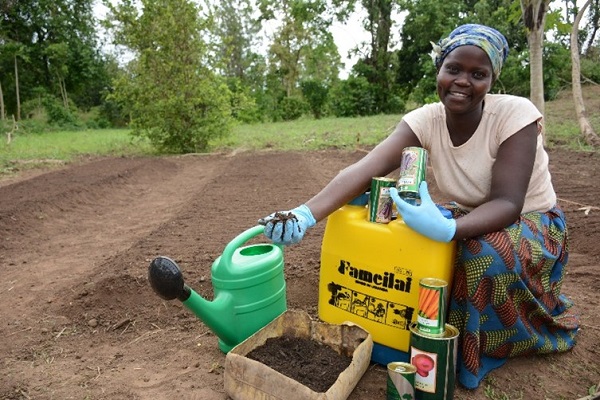
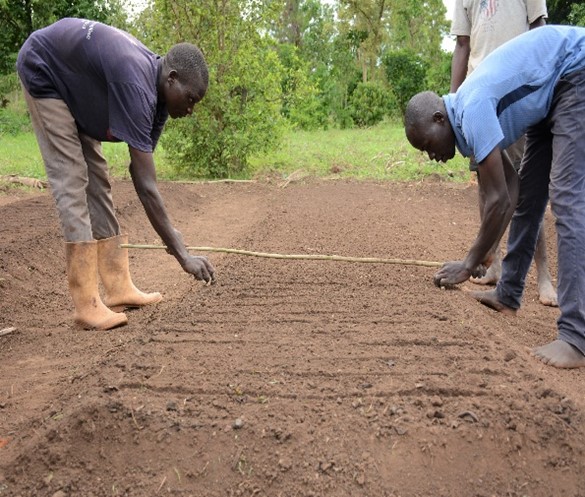
Anna, 20, from Amuria District, is earning a sustainable income raising and selling goats.
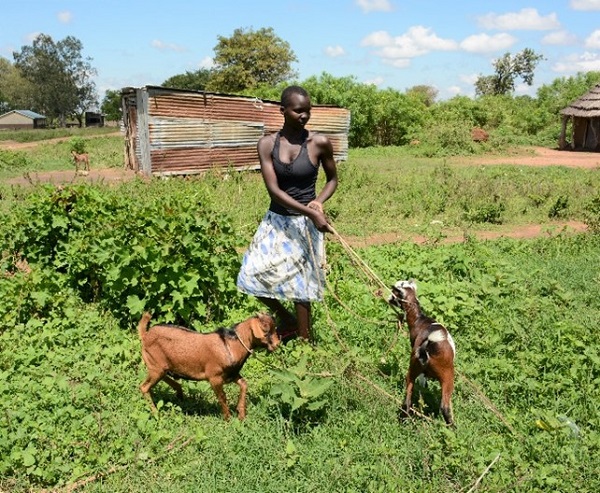
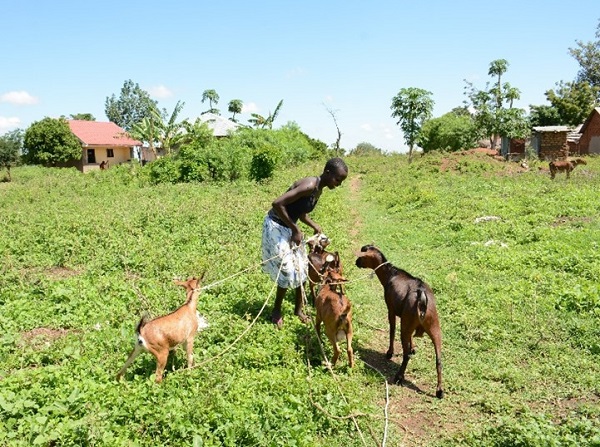
Grace, 17, sells the cassava she grows on her farm in Katakwi District.
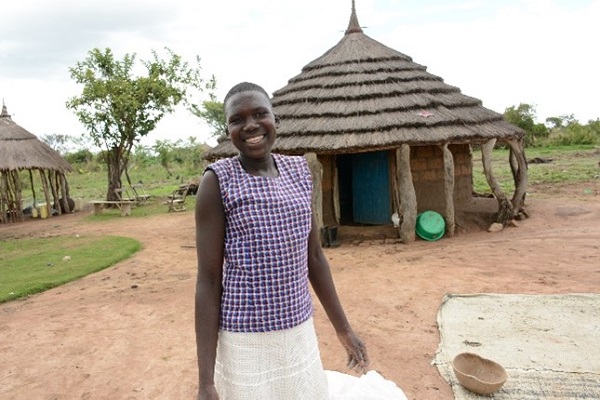
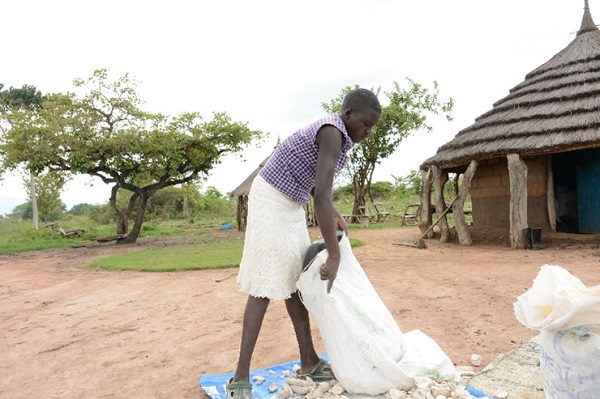
Mary, 20, operates a food stall in Serere Distict where she sells her crops.
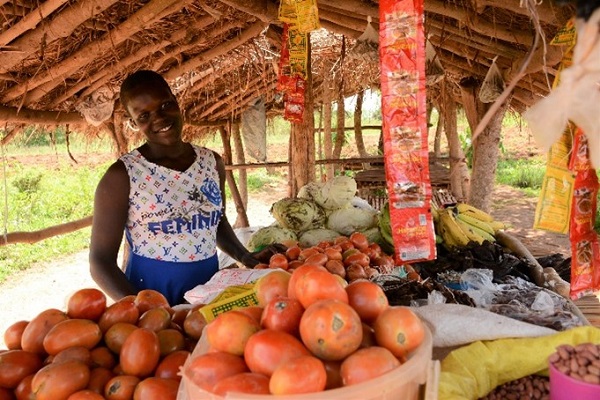
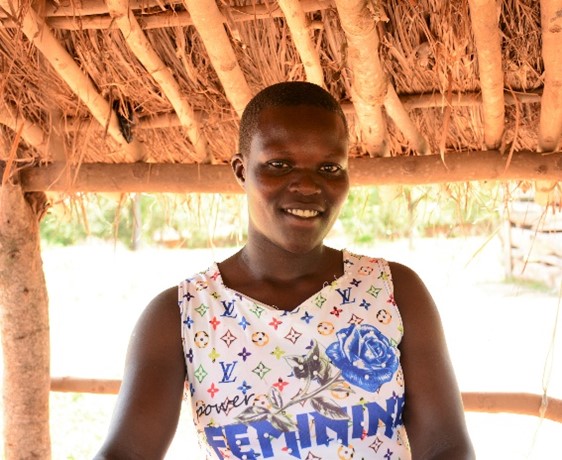
Celebrating World Youth Skills Day
July 15 is World Youth Skills Day – a day when people the world over celebrate the positive impact of skills training for youth. It’s time we all recognize the potential of young people as catalysts for change and commit to providing them with the skills and opportunities they need to build a sustainable world for all. When young people can support themselves economically – including young women – we all reap the benefits. Together, we can shape a brighter future where no young person is left behind.
Here’s to the amazing participants in the Uganda program and all they will accomplish for themselves and their children!
Loading...

